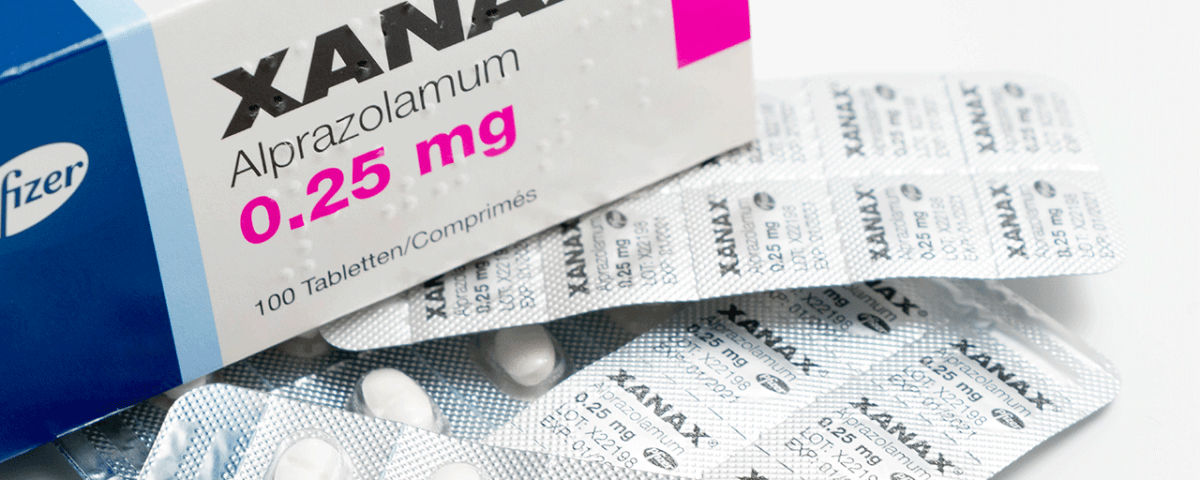In the world of prescription medications, Xanax, known generically as alprazolam, is a widely prescribed benzodiazepine primarily used to alleviate symptoms of anxiety and panic disorders. While it can be an effective tool when used as directed by healthcare professionals, the misuse and abuse of Xanax are growing concerns. Recognizing the signs and symptoms of Xanax addiction is crucial for both individuals using the medication and those around them. The experts at our drug rehab in Sebring dive into the key indicators of Xanax addiction, shedding light on behavioral, physical, and psychological manifestations that may signal the need for intervention and professional support. Understanding these signs can empower individuals and their loved ones to take proactive steps toward addressing Xanax abuse and seeking the appropriate help for a healthier and more sustainable path forward.
Is Xanax Addictive?
Yes, Xanax is addictive. Xanax belongs to a class of drugs known as benzodiazepines, which are central nervous system depressants. Benzos, like Xanax, work by amplifying the calming effects of gamma-aminobutyric acid (GABA), a neurotransmitter that occurs naturally in the brain.
For the treatment of anxiety and panic disorders, Xanax is generally safe and effective when taken as prescribed under a doctor's supervision. On the other hand, overuse, higher dosages than recommended, or prolonged use of the drug may cause issues.
When Xanax is used for an extended period, tolerance can develop, requiring higher doses to produce the same therapeutic effects. Furthermore, drug dependency can happen, in which case the body adjusts to the drug's presence and experiences withdrawal symptoms if the dosage is abruptly stopped or reduced.
The symptoms of Xanax withdrawal can include tense muscles, anxiety, insomnia, restlessness, irritability, and, in extreme situations, seizures. When stopping benzodiazepine medications, it's important to follow a healthcare provider's advice because there may be withdrawal symptoms.
Is Xanax a High-Risk Drug?
Alprazolam (Xanax) is classified as a Schedule IV substance, meaning it’s considered to have a lower potential for abuse than drugs like opioids or amphetamines. However, Xanax is high-risk in cases of overdose. According to research, alprazolam is significantly more toxic than other benzodiazepines in cases of overdoses. Individuals with an increased risk of suicide or who are using alcohol, opioids, or other sedating drugs should not take Xanax, as the drug may contribute to or lead to further issues.
Getting into treatment is easy with our free insurance verification
"*" indicates required fields
How Is Xanax Abused?
Xanax is the brand name for the medication alprazolam, which is prescribed to treat anxiety and panic disorders. As one of the most addictive drugs in the world, Xanax is often abused despite the many restrictions and regulations regarding its medical uses. Xanax is abused in several ways, including:
- Taking larger doses than prescribed: To maximize the effects of Xanax, abusers may take larger doses than advised or take it more frequently than advised.
- Recreational use: To achieve feelings of relaxation, euphoria, or a "high" akin to alcohol's effects, some people take recreational Xanax.
- Polysubstance abuse: When Xanax is mixed with other drugs, like alcohol or opioids, it can be abused. The chance of an overdose and negative effects can rise dramatically as a result.
- Snorting or injecting: Some people may dissolve Xanax in liquid for injection or crush the tablets into powder for snorting. This may cause the effects to take effect more quickly, but it also raises the possibility of complications.
- Dependency and tolerance: Long-term Xanax users may develop tolerance, requiring higher dosages to produce the same results. This may play a role in the development of dependence, whereby the user feels compelled to keep taking the medication to prevent experiencing withdrawal symptoms.
Because Xanax is a prescription medication, abusers will obtain the drug either through illicit means or by purchasing it from someone with a prescription. Long-term effects of Xanax abuse can include addiction, overdose, and other health hazards. Seizures, anxiety, and insomnia are some of the withdrawal symptoms that can occur when taking Xanax suddenly.
It’s critical to get professional help from a healthcare provider or addiction specialist if you or someone you know is abusing Xanax. They can offer assistance in overcoming substance abuse, safe tapering, and rehabilitation.
Why Do People Abuse Xanax?
People may abuse Xanax for several reasons. Here are some common reasons for abusing Xanax:
- Cope with anxiety: Xanax is commonly prescribed to treat anxiety and panic disorders. For this reason, some individuals may misuse the medication to self-medicate symptoms of anxiety or stress.
- Recreational use: As a type of sedative, Xanax can cause feelings of relaxation and euphoria, which some individuals may seek for recreational purposes. The sedative effects of the drug, or its “high,”,= can create a sense of calm that users may desire.
- Peer pressure: Social influences and peer pressure can also contribute to Xanax misuse, as individuals may be encouraged to take the drug in social settings to fit in. Individuals may also be pressured to combine Xanax with alcohol or other substances to enhance its effects.
- Misconceptions about safety: Some people believe prescription medications like Xanax are safer than illegal drugs like heroin or cocaine. This misconception can lead to misuse, as individuals believe that these medications must be safe since they are prescribed by doctors.
- Self-medication for insomnia: Because Xanax may act as a sedative, some people may use it to self-medicate sleep problems like insomnia.
- Escaping reality: Some individuals may abuse Xanax to escape reality or numb emotional pain.
- Experimentation: Some people may initially abuse Xanax simply out of curiosity or experimentation, which, in many cases, eventually becomes a pattern of misuse.
- Dependency and tolerance: Long-term use of Xanax can lead to tolerance, where higher doses are required to experience the same effects. As individuals become more tolerant of the drug’s effects, their bodies may become dependent on it, as well.
Xanax abuse can have serious physical and psychological consequences. Individuals who have developed a dependence on or addiction to Xanax should seek professional help from an addiction specialist for proper assessment and treatment options. As one of the best addiction rehab centers in Florida, Banyan Sebring offers a wide range of treatment options that can help individuals with Xanax addictions regain their health and sobriety.
What Happens If You Abuse Xanax?
As we previously mentioned, abusing Xanax refers to using the medication in ways not prescribed by a healthcare professional. Below are some common side effects of Xanax abuse:
- Increased addiction risk: Xanax can become a habit and is highly abuse-prone. A substance use disorder is more likely to develop when drugs are misused, such as by taking larger dosages or using them more frequently than recommended.
- Development of tolerance: With long-term use or abuse, tolerance can develop, meaning that the individual may need higher doses of Xanax to achieve the same effects. This can contribute to a cycle of escalating use.
- Physical dependency: Physical dependence may result from long-term Xanax abuse. When a drug becomes ingrained in the body, it is said to be dependent. Withdrawal symptoms may arise from sudden stops or large dosage reductions.
- Withdrawal symptoms: Anxiety, insomnia, restlessness, irritability, muscle tension, and, in extreme situations, seizures can result from abruptly stopping or lowering the dosage of Xanax.
- Reduced cognitive function: Because Xanax is a central nervous system depressant, abusing it can lead to reduced cognitive function, which includes coordination, memory, and attention.
- Increased drowsiness and sedation: Xanax abuse can amplify the sedative effects of the drug, resulting in excessive sleepiness, lightheadedness, and poor judgment.
- Risk of overdose: Excessive Xanax dosages, particularly when paired with alcohol or opioids, can raise the risk of overdosing. Excessive sleepiness, disorientation, poor coordination, respiratory depression, and, in extreme circumstances, coma or death, are some of the symptoms of an overdose.
- Psychological effects: Abuse of Xanax may lead to mood swings, depression, and a higher likelihood of having suicidal thoughts.
- Negative effects on mental health: Long-term Xanax misuse may cause or worsen mental health issues, such as depression and anxiety.
- Social repercussions: Xanax drug abuse can result in strained relationships, difficulties at work or school, and legal troubles.
Signs of Xanax Abuse
Recognizing Xanax addiction symptoms and signs can be an important step in identifying its abuse in oneself or someone else. If you suspect someone is abusing or addicted to Xanax, encourage them to seek professional help or reach out for support and guidance to address the issue effectively.
Here are some common Xanax abuse symptoms and signs to look out for:
- Changes in social relationships
- Difficulty concentrating
- Disregard for previously enjoyed activities
- Doctor shopping or obtaining Xanax from multiple sources
- Engaging in risky behaviors
- Frequent mood swings
- Frequent requests for prescription refills
- Impaired coordination
- Increased sedation and drowsiness
- Isolation from friends and family
- Memory problems
- Neglect of responsibilities
- Problems at work or school
- Unexplained euphoria or drowsiness
- Unexplained financial difficulties
Abusing Xanax or using it without a prescription increases your risk of addiction. If you or someone you care about is battling Xanax addiction, it’s crucial to seek help from a healthcare provider or addiction specialist.
At our Highlands County drug rehab, we offer Xanax addiction treatment that may involve prescription drug detox to gradually flush the drug from the body, counseling, and support to address the underlying issues that contribute to its abuse. With the support of our experts, you or a loved one can regain sobriety and turn over a new leaf.









